Gaddafia
Adelina Marini, February 26, 2011
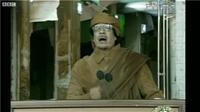 It was clear for quite some time that in Libya the unrest would hit a rock because this is the country of Gaddafi - the state Gaddafia. A country, ruled only by a single person, without a government, with rules written by Gaddafi himself in his famous Green Book. And this has been going on for 40 years now. With all his "eccentricities" (let's call them like this for political and ethical correctness) it was also clear that the colonel would not surrender without leaving a fiery hell behind.
It was clear for quite some time that in Libya the unrest would hit a rock because this is the country of Gaddafi - the state Gaddafia. A country, ruled only by a single person, without a government, with rules written by Gaddafi himself in his famous Green Book. And this has been going on for 40 years now. With all his "eccentricities" (let's call them like this for political and ethical correctness) it was also clear that the colonel would not surrender without leaving a fiery hell behind.
And although there were certain hesitant moments in the beginning of the week (February 21st), when the Libyan leader for the first time demonstrated weakness, but 24 hours later he showed precisely the opposite mood. In a speech, much shorter than usual (approx. an hour and 40 minutes), the Libyan leader spoke without any remarks prepared in advance, against the backdrop of a surrealistic decor of the abandoned barracks in Tripoli Bab al-Azizia. The mise-en-scene was definitely not chosen by accident and its meaning could be interpreted a lot, but in any case it looked ridiculous against the background of the protests and the violence used against the protesters. On top of it, the Libyan State TV was constantly showing, except Gaddafi, a memorial in front of the barracks, depicting a big golden hand that firmly grips an American fighter.
The man-Libya
The speech itself was inconsistent and chaotic. The colonel said in the very beginning that he would not resign for a very simple reason - he is not a president, otherwise, if he were, he would have immediately resigned, but he isn't. He is a revolutionary leader and as such he will not succumb to the pressure and will fight till the very end. Further he added that he would not succumb to international pressure, no matter whether it came from Latin America, Asia or Europe. Gaddafi also explained that he would die like a martyr.
Moreover, the leader called the protesters drugged youngsters who were misled by a group of sick people. Then he said he would not use violence against Libyan people but only against traitors.
According to information of foreign media, quoting witnesses in Libya, many people, while listening to Gaddafi's speech, were throwing stones on the TV sets and were angry.
In the late afternoon of February 22nd, when it became clear that Muammar Gaddafi would make a statement on TV, speculations spread about what he was to say. According to one of the versions it was expected Gaddafi to announce the transformation of Libya into a federation, and according to another - that he would introduce a package of reforms. Neither happened during the improvised speech.
The feebleness of the international community
Muammar Gaddafi's address to the Libyan people was an extremely depressive 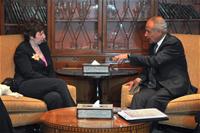 experience for every free person. Even more depressing, though, appeared to be the attitude of the so called international community. Yet during Gaddafi's speech, the BBC spoke live from Cairo with the High Representative of the EU for foreign affairs, baroness Catherine Ashton. She did not succeed in saying what exactly the EU could do to react to that speech in order to help "the legitimate demands of the Libyan people". In spite of the numerous questions in this context, the single voice of the European foreign policy only said that she hoped the international community to react in a coordinated manner, whatever this might mean.
experience for every free person. Even more depressing, though, appeared to be the attitude of the so called international community. Yet during Gaddafi's speech, the BBC spoke live from Cairo with the High Representative of the EU for foreign affairs, baroness Catherine Ashton. She did not succeed in saying what exactly the EU could do to react to that speech in order to help "the legitimate demands of the Libyan people". In spite of the numerous questions in this context, the single voice of the European foreign policy only said that she hoped the international community to react in a coordinated manner, whatever this might mean.
And again, in the same time while Muammar Gaddafi was waving his Green Book and quoted how the traitors were to be executed, in New York was taking place a session of the Security Council of the UN, called upon the request of the Libyan 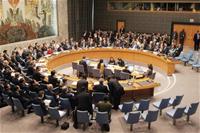 delegation. The 15-member Council came out with a brief statement, condemning violence and use of force against civilians in Libya. The members of the Security Council also called for an immediate cessation of violence and for measures to address "the legitimate demands of the population, including through national dialogue".
delegation. The 15-member Council came out with a brief statement, condemning violence and use of force against civilians in Libya. The members of the Security Council also called for an immediate cessation of violence and for measures to address "the legitimate demands of the population, including through national dialogue".
Besides, from the short statement one could see Security Council's members' concern by the shortage of medical supplies for the wounded, as well as their wish the country to respect the freedom of peaceful gathering and expression, including media freedom.
In the same spirit sounded the official statement of Catherine Ashton, which was published before that of UN's Security Council. There she said that the EU would wait for the resolution of the Security Council which, as written in the statement, was expected to discuss various options, including restrictive measures. She also announced that the EU had suspended the negotiations on a framework agreement with Libya.
According to the BBC, Russia and China were against a sharper tone of the statement of the Security Council, because, they said, the situation in Libya was an entirely "domestic problem". Later, though, both countries signed the document. The deputy permanent representative of Libya in the organisation, Ibrahim Dabbashi, expressed disappointment with the insufficient force of the statement. It was Dabbashi that a day earlier called on the Libyan leader to step down. On February 22nd Libya's ambassador to the US resigned, as well as the minister of the interior, who joined the demands of the protesters.
The Arab League also condemned the situation in Libya and announced that it would bar the country from taking part in the meetings of the organisation, the  leader of which is the Egyptian Amr Moussa.
leader of which is the Egyptian Amr Moussa.
In general the international reactions were cautious until the end of the week, in spite of the heavy consequences from the situation in the Jamahiriya. Libya is the first member of OPEC (the oil exporting countries) where there is unrest. Libya is the 12th largest producer of oil.
Nothing of that, however, was included in one form or another in Muammar Gaddafi's speech. He spoke only about revolution, traitors, executions, love, honour, forefathers and martyrdom. He mentioned not even a word about the economic development of his country, about solving its social problems or about his visions of the future. Libya has a population almost like Bulgaria's - 6.5mn people, though much younger - average age of 24 years. The level of literacy is around 88% and the gross national income per capita, according to World Bank's data for 2009, is $12 020.
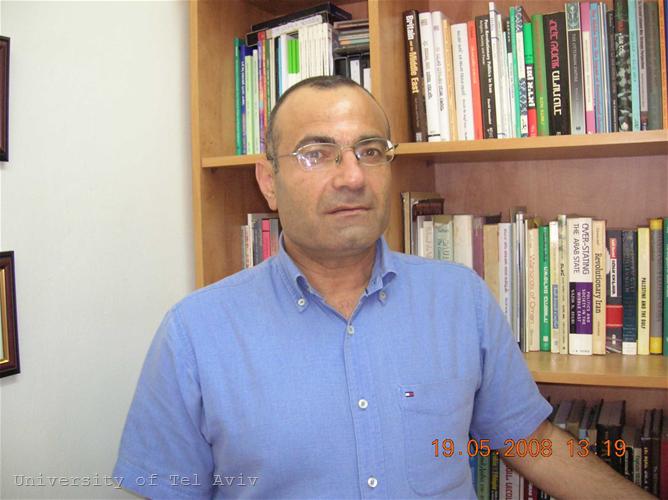 | © University of Tel Aviv
| © University of Tel Aviv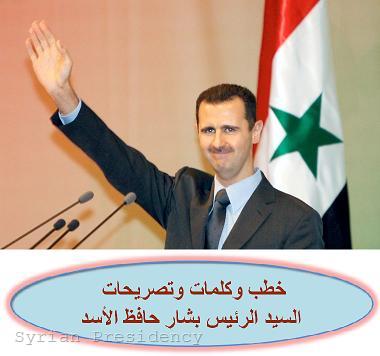 | © Syrian Presidency
| © Syrian Presidency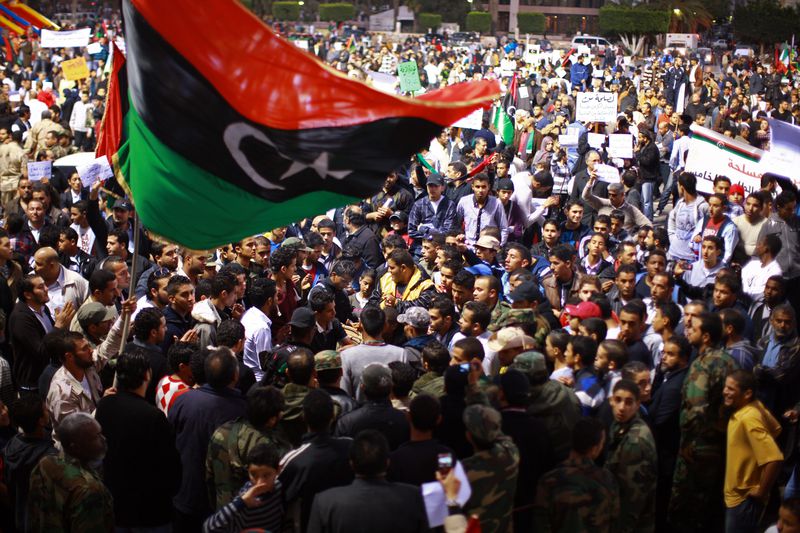 | © UN
| © UN